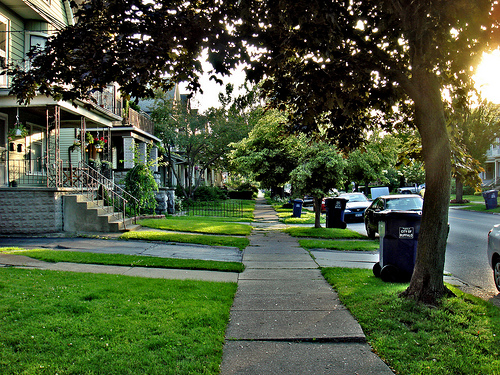Economy Watch: Case-Shiller, Confidence
The Case-Shiller 20-city index did an odd thing in April, according to the latest report from Standard & Poor's: It went up by 0.7 percent month-over-month, the first increase since July 2010.
June 29, 2011
By Dees Stribling, Contributing Editor
The Case-Shiller 20-city index did an odd thing in April, according to the latest report from Standard & Poor’s: it went up by 0.7 percent month-over-month, the first increase since July 2010. Thirteen of the 20 cities that the index tracks saw rises, seven saw declines.
Washington, D.C. outpaced other metro areas in terms of price increases. But in a lot of other places, such as greater Charlotte, Chicago, Detroit, Las Vegas, Miami and Tampa, valuations continued dropping, and are now down roughly to 2002 levels. Inventory, as pumped up by foreclosures, continues to vex those markets, along with slow job creation.
Still, it’s a little good news for the housing market, perhaps, which can use just about any optimistic scrap of information it can get. But such monthly data does not a trend make. Sometimes a dead cat is just a dead cat. For one thing, home values usually rise in the spring simply because it’s spring. There were similar month-over-month upticks in April 2009 and April 2010 that didn’t lead to a housing recovery, or even a bottom for the market.
Consumer Confidence Cools Down in May
Summer isn’t putting any vim into consumers’ confidence. The Conference Board’s Consumer Confidence Index dropped to 58.5 in June, according to the organization on Tuesday. In May, the (revised) reading was 61.7.
Consumers’ appraisal of present conditions took a small dive, with those claiming business conditions are “good” remained the same at 14.3 percent, while those claiming business conditions are “bad” increased to 38 percent from 37.2 percent. Likewise, consumers’ assessment of the job market was less hopeful. Those saying that jobs are “hard to get” edged up to 43.8 percent from 43.5 percent, while those–who?–asserting that jobs are “plentiful” decreased to 5.2 percent from 5.7 percent.
“This month’s decline in consumer confidence was driven by a less favorable assessment of current conditions and continued pessimism about the short-term outlook,” noted Lynn Franco, director of the Conference Board Consumer Research Center. Retailers take heed: “Given the combination of uneasiness about the economic outlook and future earnings, consumers are likely to continue weighing their spending decisions quite carefully,” she continued.
Mortgage Fraud Reports Jump in First Quarter
The Financial Crimes Enforcement Network (FinCEN) reported on Tuesday that mortgage loan fraud reports spiked 31 percent during the first quarter of 2011, compared with the same period last year. The main reason for the jump is that mortgage lenders are now receiving demands to repurchase bum mortgages originated during the golden years for bum mortgages–a can of worms labeled “2006-2007.”
“A substantial majority of reports involved activities which occurred in 2006 to 2007, an indication that the industry is slowly making its way through the most problematic mortgages,” said FinCEN Director James H. Freis Jr. in a statement. California, ever the land of opportunity, remained the number-one state in mortgage fraud, according to FinCEN.
Wall Street, perhaps heartened by possibly positive news from Greece (for Greek-debt holders, not for Greeks), continued its upward motion on Tuesday, with the Dow Jones Industrial Average gaining 145.13 points, or 1.21 percent. The S&P 500 was up 1.29 percent and the Nasdaq advanced 1.53 percent.








You must be logged in to post a comment.